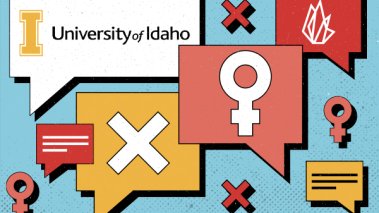Table of Contents
FIRE to the University of Idaho: Defend faculty’s First Amendment right to discuss abortion, contraception

Today, FIRE wrote a second letter to the University of Idaho’s leadership urging them to do more to support faculty in the wake of a new state law that threatens criminal penalties for faculty who do not maintain neutrality when discussing abortion in the classroom.
Last week, FIRE demanded that the university retract guidance restricting how faculty can talk about abortion in the classroom. On October 5, U of I President Scott Green issued another memo stating that further “nuanced” guidance is coming, that the university has not changed its academic freedom policies, and that the university “supports faculty leading discussions on any related educational topic within the classroom.”
In today’s letter, FIRE explained to administrators the exact steps the institution must take to protect academic freedom:
First, U of I must confirm it will not interpret the state law broadly in any disciplinary decisions or proceedings. Second, it should clarify its neutrality guidance is not an institutional requirement, but rather functions solely as advice to faculty on mitigating potential criminal prosecution. Third, it must ensure no faculty are punished for their protected expression. As explained in our previous letter, no statute can authorize a public university to violate its faculty’s First Amendment rights by, for example, initiating an investigation into protected speech or using expression to form the basis for any other punishment.
Because faculty rights are the beating heart of higher education, U of I should also commit to asking state lawmakers or other relevant officials to seek a formal Attorney General opinion concerning the scope of this new law. Combining that kind of clarification of the law’s scope, with U of I reassuring faculty that it will interpret the statute narrowly, will provide the necessary protection for faculty instruction and academic work.
Finally, U of I is bound by legal precedent clearly holding that the First Amendment protects faculty speech “related to scholarship or teaching” when it addresses matters of public concern. To this end, the university should commit to providing resources and support to faculty if they are criminally charged for exercising their expressive rights in the performance of their duties.
U of I (mis)Interprets the Law
While our letter explains the proactive steps the university should take, FIRE also takes issue with the U of I’s interpretation of the law.
Campus administrators largely rely on two provisions in the Idaho law: The first prohibits using public “funds to perform or promote abortion, provide counseling in favor of abortion, make referral for abortion, or provide facilities for abortion or for training to provide or perform abortion.” The second prohibits the use of tuition and fees “to pay for an abortion, provide or perform an abortion, provide counseling in favor of abortion, make a referral for abortion, or provide facilities for an abortion or for training to provide or perform abortion.”
FIRE will be there every step of the way to ensure the university upholds faculty rights on campus.
To the extent the bill bans “promoting” abortion, it goes even further than requiring neutrality: The bill would permit advocacy against abortion, but not advocacy for abortion. Such viewpoint-based regulation is unconstitutional.
The provision also violates academic freedom. Advising faculty that they can protect themselves by remaining neutral when teaching in the classroom is problematic because it, too, prohibits expressing specific viewpoints.
The context of the law’s prohibition on “counseling in favor of abortion” — also a viewpoint-based regulation — makes clear it is not designed to touch on classroom advocacy. Rather, it is more straightforwardly a diktat to those giving specific advice to individuals in the context of helping them reach personal decisions. The university thus should not view that provision as implicating the right of faculty to take positions in the classroom. If the ban on counseling were applicable in the classroom, that would also unconstitutionally violate guarantees of academic freedom.
The chilling effect of the new state law and U of I’s guidance is clear: Viewpoint-discriminatory policies limit classroom discussion by depriving faculty of important pedagogical tools in classroom teaching. This can include the ability to feign a position to encourage discussion and critical thinking, such as through devil’s advocacy or Socratic dialogue.
U of I Must Take Concerns Seriously
President Green’s latest memo also characterized the conversation about the university’s guidance as rife with “misinformation, confusion and emotion,” and accused external actors of “using this occasion to advance their own political agendas.” The university must not dismiss genuine concerns about academic freedom as misinformation, especially when public criticism comes from sources as close to home as U of I’s student government, which passed a resolution calling on it to rescind the guidance.
U of I should make no mistake: FIRE will be there every step of the way to ensure the university upholds faculty rights on campus, whether through providing our guidance to the university, or providing advocacy for faculty. As we wrote in our letter, “The public cares about freedom of expression and how generations of Americans are educated about the most vital issues in our society right now.”
Recent Articles
FIRE’s award-winning Newsdesk covers the free speech news you need to stay informed.


FIRE Statement: X Corp's lawsuit and Texas's investigation into Media Matters for America are deeply misguided

Anonymous speech is as American as apple pie


